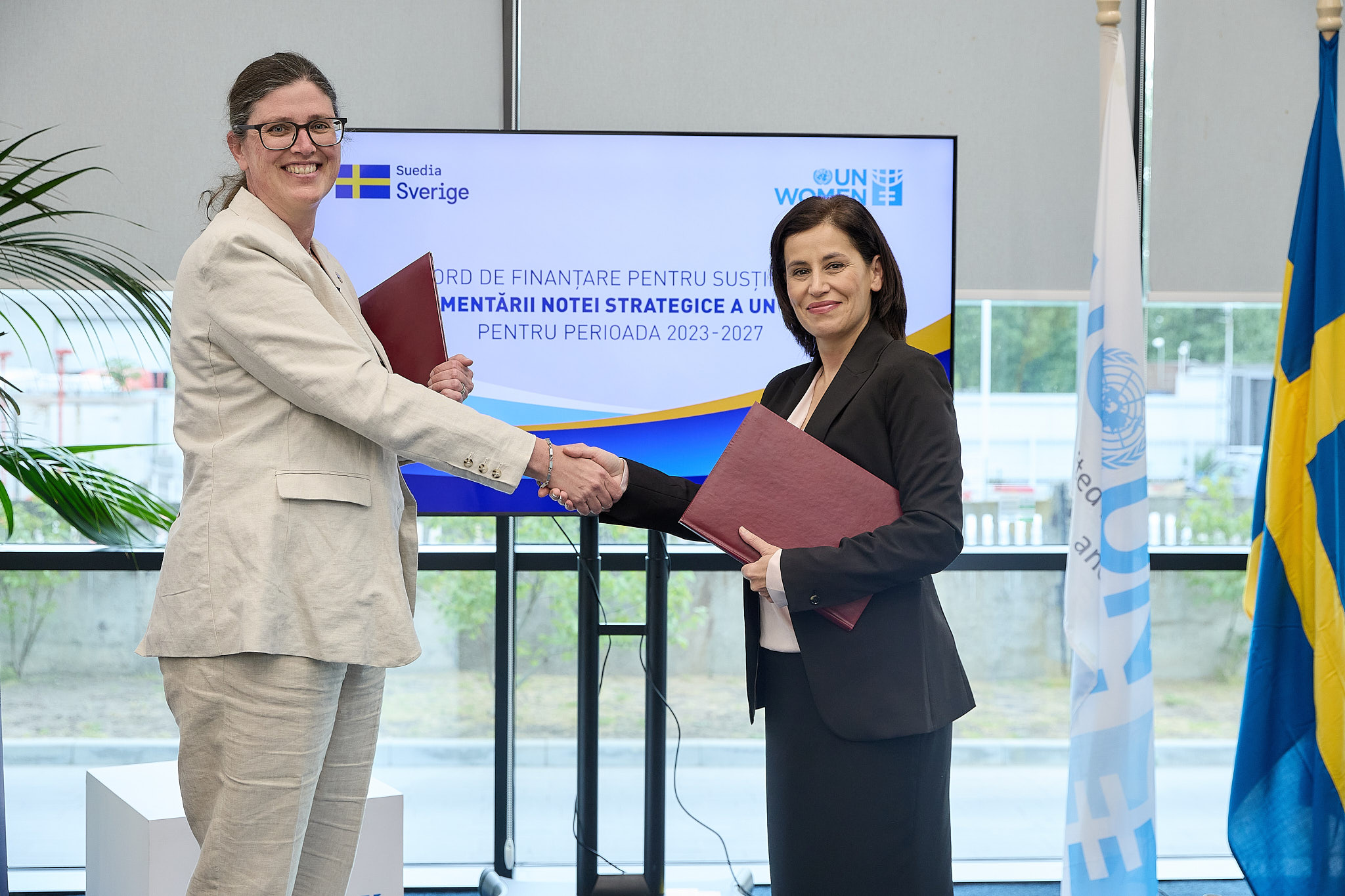Sweden and UN Women sign financing agreement to promote gender equality in Moldova
Date:
In recent years, important progress has been made towards achieving gender equality in Moldova. Women have gradually but steadily increased their representation in leadership and decision-making processes, including women from underrepresented groups. Moldova has ratified the Council of Europe Convention on preventing and combating violence against women and domestic violence, and various laws and policies are being amended to eliminate the main barriers that prevent women from participating in the labour market.

Despite this progress, gender inequalities persist and gender stereotypes still prevail in society. During election campaigns, women candidates are subjected to slander, hate and sexist speech, gender discrimination and violence. Women remain underrepresented in the labour market due to the persistence of patriarchal attitudes and deep-rooted stereotypes. Women from underrepresented groups (e.g. Roma women, women with disabilities and rural women) have even lower employment rates due to multiple forms of discrimination. Although progress has been made in recent years, the reporting of gender-based violence remains low compared to its prevalence, mainly due to stigmatisation as well as a lack of trust in existing legal institutions and services.
In this context, the Government of Sweden and UN Women signed a cooperation agreement through which Sweden will support the implementation of UN Women's Strategic Note for 2023-2027. The amount of the agreement is 60 million Swedish kronor, and the essential objective is to promote gender equality and contribute to the development of an equal and sustainable society, without discrimination, in which every girl and woman feels safe.
Her Excellency Katarina Fried, the Ambassador of Sweden in Chișinău, explained that the cooperation agreement will implement several activities at the national and community levels, with the objective to support women and girls, including those from underrepresented groups, in enjoying their human rights equally in a safe and peaceful environment and in building, together with men and boys, an inclusive society, free from violence and harmful social norms. “Last year, Moldova was granted the status of candidate country for European Union membership and committed to gradually aligning its legislation with EU standards and international instruments, including in the field of gender equality and non-discrimination,” she said. “In this way, we encourage all local and international partners to cooperate in this regard."
The main strategic priorities of UN Women for the period 2023-2027 are:
- Gender-sensitive governance and women's participation in public life;
- Women's empowerment and economic resilience;
- Ending violence against women and girls;
- Women, peace and security;
- Coordinating gender equality and women's empowerment efforts within the UN system; and
- Ensuring the link between development, humanitarian assistance and peace and security-building interventions.
"The partnership between Sweden and UN Women is a strategic and long-lasting one, and we thank Sweden for its firm and consistent commitment to promoting and ensuring gender equality,” said Dominika Stojanoska, UN Women Moldova’s Country Representative. “We acknowledge the crucial role and support that Sweden offers to girls and women in Moldova, helping them become promoters of change and contribute significantly and equally to the development of a sustainable society."
Gender inequalities still exist in the country. At the same time, there are excellent preconditions for further progress in achieving gender equality and empowering women, thanks to the support of Sweden and other development partners, strong political will among the parliament and government institutions, a committed and competent civil society and the increasing involvement of the private sector and academia.